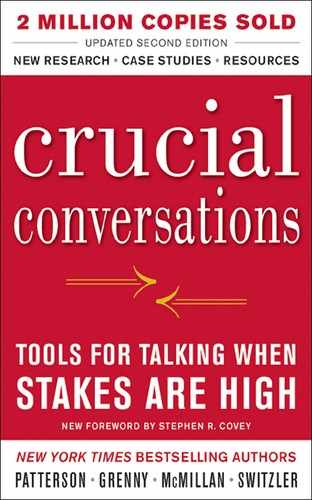DIALOGUE IS NOT DECISION MAKING
The two riskiest times in crucial conversations tend to be at the beginning and at the end. The beginning is risky because you have to find a way to create safety or else things go awry. The end is dicey because if you aren’t careful about how you clarify the conclusion and decisions flowing from your Pool of Shared Meaning, you can run into violated expectations later on. This can happen in two ways.
How are decisions going to be made? First, people may not understand how decisions are going to be made. For example, Cara is miffed. Rene just plunked down a brochure for a three-day cruise and announced he had made reservations and even paid the $500 deposit for an outside suite.
A week ago they had a crucial conversation about vacation plans. Both expressed their views and preferences respectfully and candidly. It wasn’t easy, but at the end they concluded a cruise suited both quite well. And yet Cara is miffed, and Rene is stunned that Cara is anything less than ecstatic.
Cara agreed in principle about a cruise. She didn’t agree with this particular cruise. Rene thought that any cruise would be fine and made a decision on his own. Have fun on the cruise, Rene.
Are we ever going to decide? The second problem with decision making occurs when no decision gets made. Either ideas slip away and dissipate, or people can’t figure out what to do with them. Or maybe everyone is waiting for everyone else to make the decisions. “Hey, we filled the pool. Now you do something with it.” In any case, decisions drag on forever.
